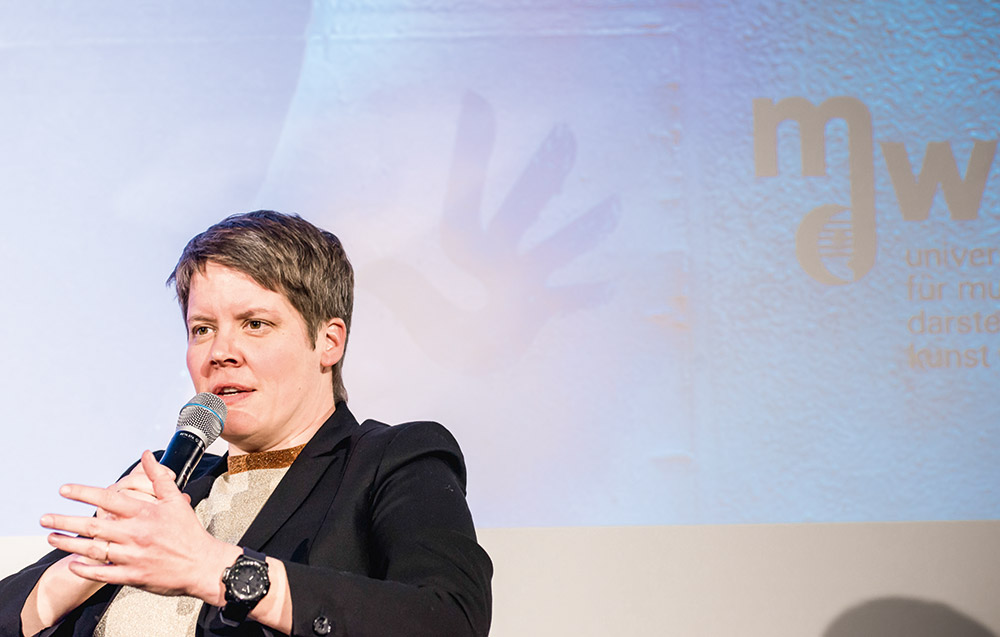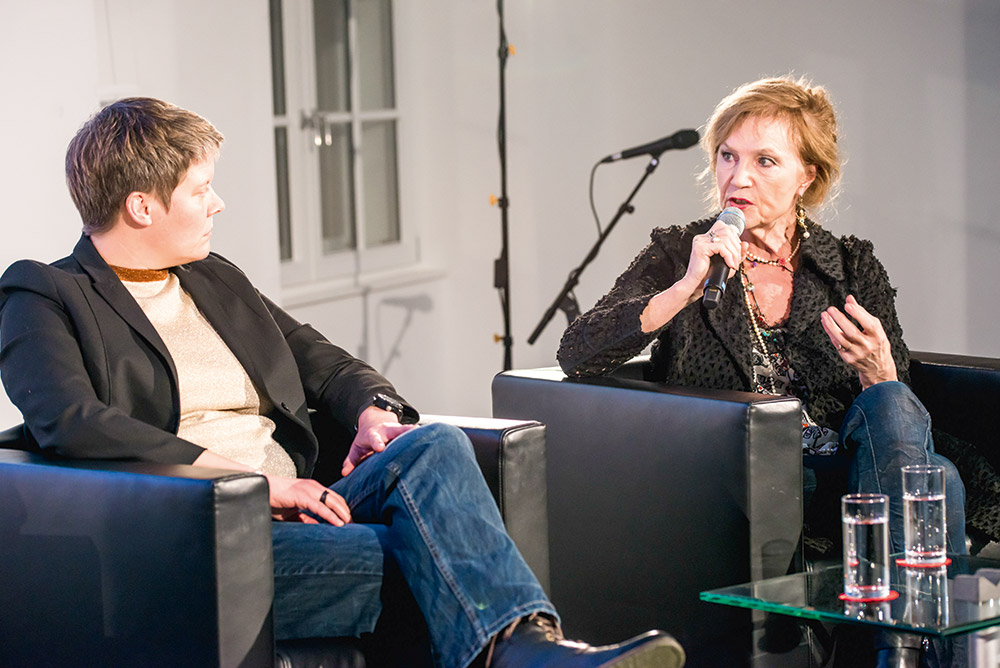Andrea Kuhn was a panellist in the discussion “Dignity – Freedom – Justice” held on 10 December 2018 at the mdw. She is director of the Nuremberg International Human Rights Film Festival (NIHRFF).

In the panel discussion, you implied that it’s not only the festival’s selection of films on human rights that’s political, but also the underlying filmmaking itself. What did you mean by that?
Andrea Kuhn (AK): We don’t believe that the ends justify the means—for example, that films about human rights need to elicit emotions like pity or shock in the greatest possible intensity. Doing so turns protagonists (in documentaries) or characters (in feature films) into mere objects, one-dimensional and depoliticised. We seek to provide a counterpoint to films like that with complex ones that show the people on camera in all their humanity and contradictions, films that both assume a thinking audience and arrive at their very own forms of expression.
How, at your film festival in Nuremberg, do you seek to realise inclusion—understood as allowing the greatest number of individuals to participate in the interest of political representation?
AK: We open up our film festival to the greatest possible number of people, including those with low incomes (free admission) and those with hearing impairments (by taking a comprehensively integrative approach). Our programming emphasis is on films made by filmmakers from the regions that their films deal with—and quite generally on films made by the most diverse possible range of people (women, people of colour, etc.), which serves to open up new perspectives. And we don’t define our festival just as a limited-time and local event; instead, we attempt—insofar as it’s desired—to share what we have (above all expert knowledge, contacts, and specialised human resources) in a way that shows solidarity with our colleagues all over the world, thus helping to reinforce their voices when they come under pressure at home.

To what extend can and should the film festival you lead also function as a free space?
AK: We define our festival as a place of exchange and as a place for having a good time together and building an atmosphere of solidarity between the audience, the filmmakers, and the team. We don’t set up a VIP area—everyone should feel equally valued and be able to engage in conversation with everyone else. We want to feature the most interesting guests (rather than the most famous ones) and the most impressive films (rather than the simplest ones and the biggest crowd-pleasers). To us, that’s freedom. It also means ignoring the dictate of growth—and sadly enough, that quite often entails self-limitation. Finally, it means working hard to convince those who help us financially, doing largely without corporate sponsors, and finding people who are eager to support our approach.

